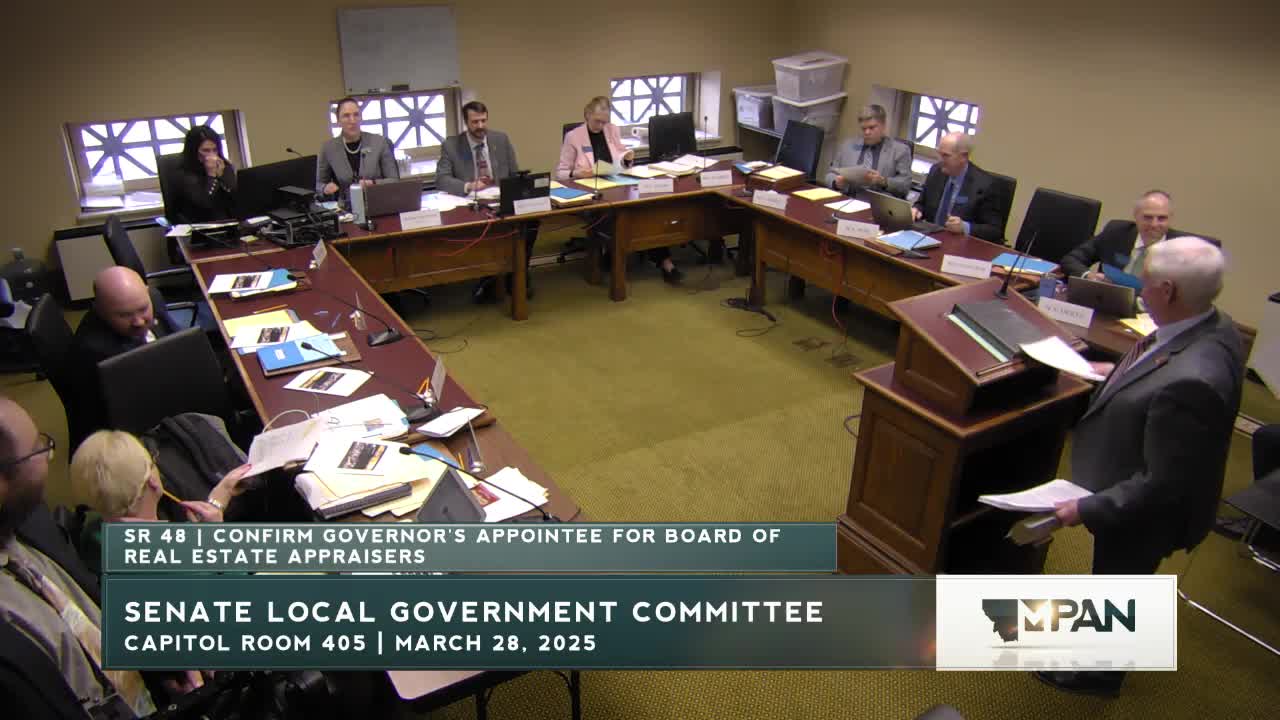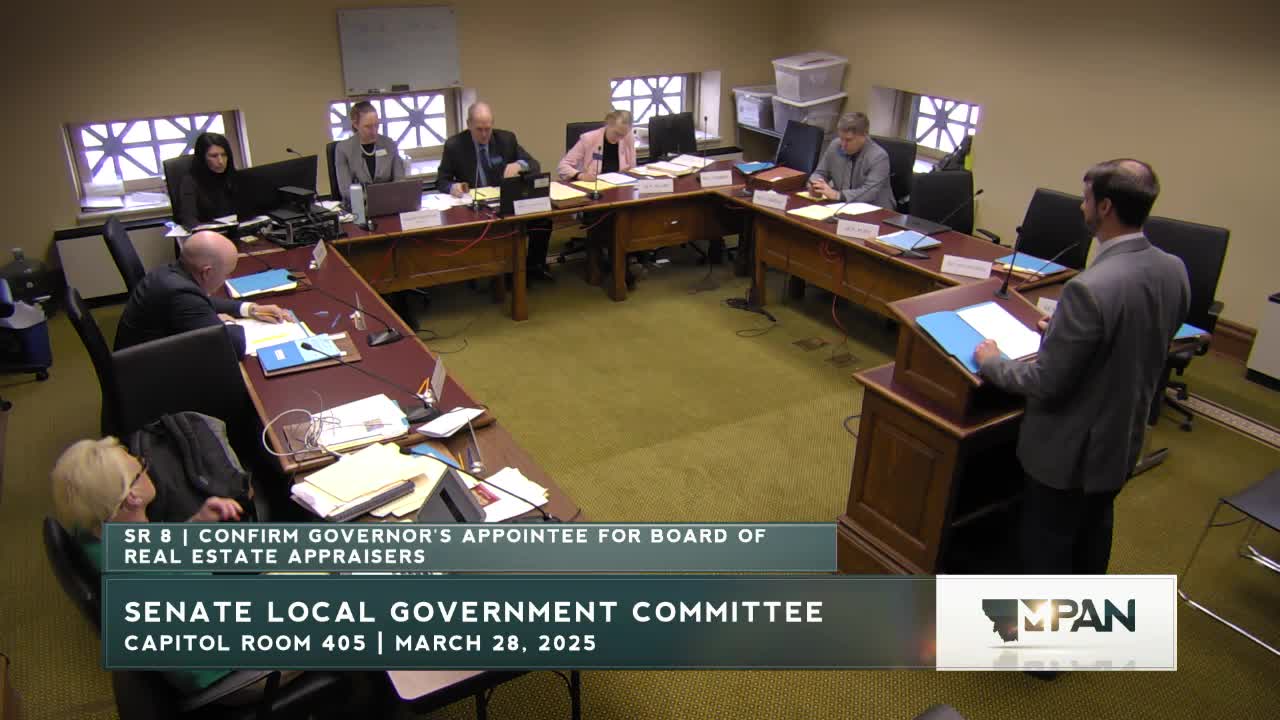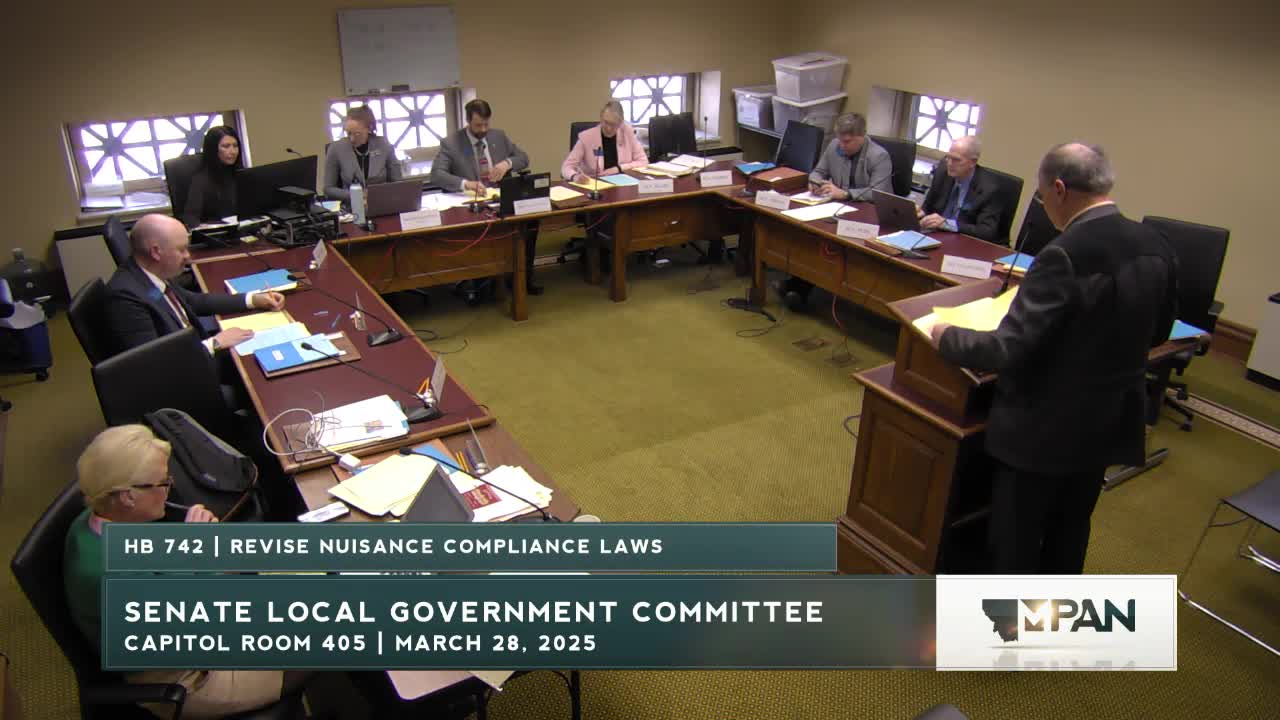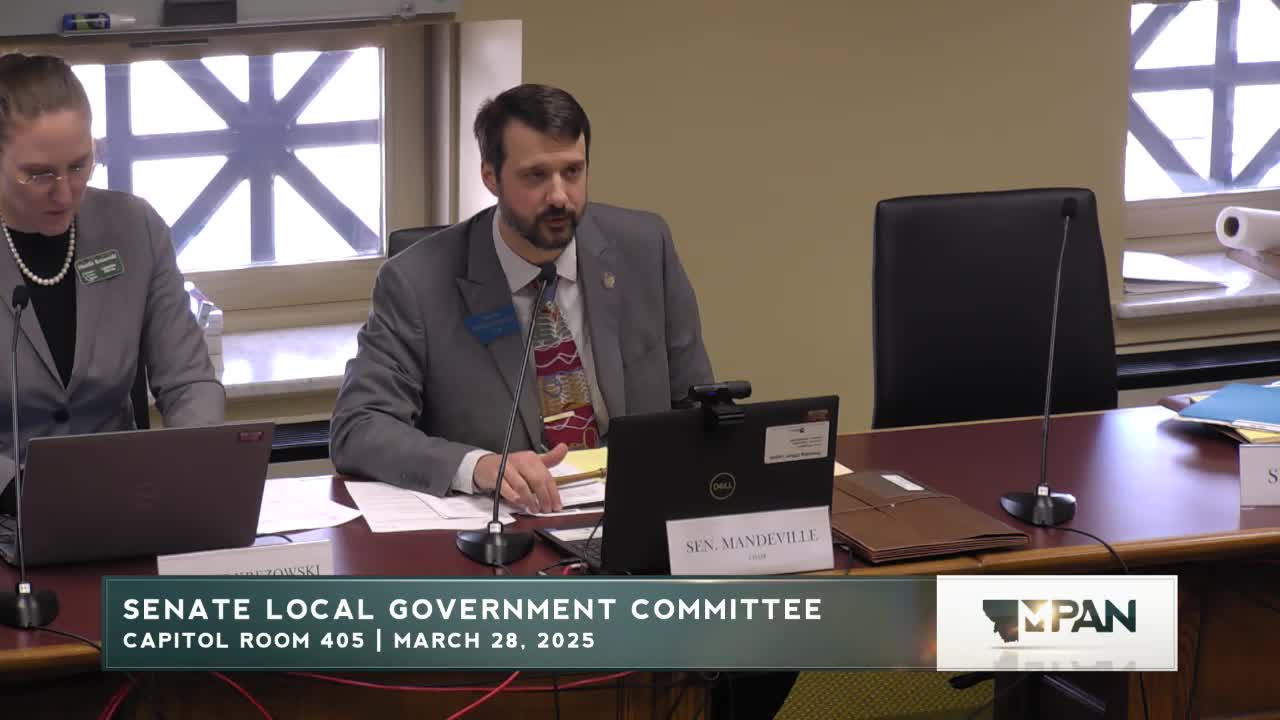Article not found
This article is no longer available. But don't worry—we've gathered other articles that discuss the same topic.

Heated hearing on HB 547 over Butte-Silver Bow fire governance exposes deep divisions between paid and volunteer departments

Committee hears brief support for Peter Fontana's reappointment to Board of Real Estate Appraisers

Bill to raise nuisance-complaint threshold draws mixed response; amendment sought for health exceptions

